Secrets of the Dead Episode Rating Graph
May 2000 - present
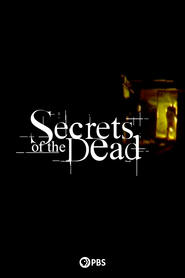
May 2000 - present
7.2

| E1 | E2 | E3 | E4 | E5 | E6 | E7 | |
|---|---|---|---|---|---|---|---|
| S1 | |||||||
| S2 | |||||||
| S3 | |||||||
| S4 | |||||||
| S5 | |||||||
| S6 | |||||||
| S7 | |||||||
| S8 | |||||||
| S9 | |||||||
| S10 | |||||||
| S11 | |||||||
| S12 | |||||||
| S13 | |||||||
| S14 | |||||||
| S15 | |||||||
| S16 | |||||||
| S17 | |||||||
| S18 | |||||||
| S19 | |||||||
| S20 | |||||||
| S21 | |||||||
| S22 | |||||||
| S23 |
Browse episode ratings trends for Secrets of the Dead. Simply click on the interactive rating graph to explore the best and worst of Secrets of the Dead's 121 episodes.
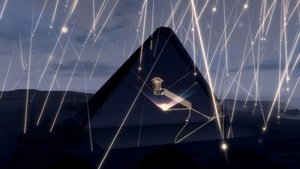
S17 Ep1
8.3
24th Jan 2018
The only one of the seven wonders of the world still standing, the Great Pyramid of Khufu has fascinated people for centuries. Tracing the origin of the legends of secret chambers hidden in the heart of the pyramid, Scanning the Pyramids will show what lies within, solving a 4,500-year-old mystery, by following the first scientific mission in 30 years to be authorized by the Egyptian government to examine the pyramids of Egypt.
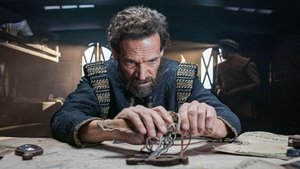
S19 Ep1
8.1
20th Oct 2021
500 years ago, Ferdinand Magellan and his crew set sail to gain control of the global spice trade. What resulted was the first circumnavigation of the earth, laying the groundwork for colonization and globalization still felt today.
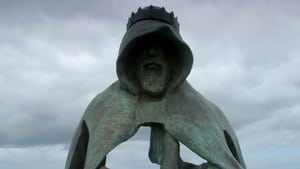
S17 Ep5
8.1
27th Mar 2019
Uncover new archaeological evidence rewriting our understanding of the Dark Ages in 5th– and 6th-century Britain that might also explain the legend of King Arthur.
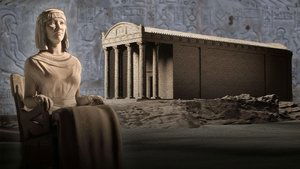
S23 Ep2
8.0
15th Oct 2025
Just below the Mediterranean's surface, in Alexandria's harbor, lay the ruins of a mysterious ancient monument. For more than 20 years, French explorer Franck Goddio has been hoping to confirm these remains are a temple belonging to Cleopatra. If true, this discovery could reveal vital new information about Cleopatra's reign and her connection with the goddess Isis.
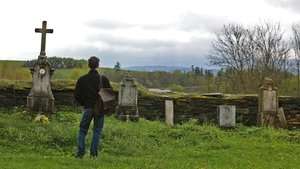
S22 Ep2
8.0
30th Oct 2024
In 2022, a terrifying discovery: a female skeleton dating from 1650, buried with a sickle across her neck and giant padlock on her toe — double protection to keep her from rising from the dead. All the evidence points to her being buried as a vampire... and she’s not alone, with more than 50 deviant burials around her. Who was she and what did these burial rituals mean?
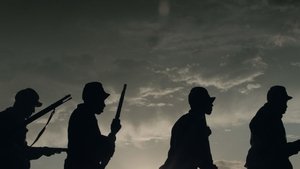
S22 Ep1
8.0
23rd Oct 2024
Originally a supply depot for Union forces in Kentucky, Camp Nelson became the site where 10,000 Black soldiers trained in the Civil War. But in the war’s last months, these soldiers were attacked by bitter Southerners. Their remains have never been found, and a team is dedicated to finding them to memorialize their service and heroism.

S19 Ep3
8.0
3rd Nov 2021
A decade-long archaeological quest reveals that the oldest stones of Stonehenge originally belonged to a much earlier sacred site – a stone circle built on a rugged, remote hillside in west Wales.
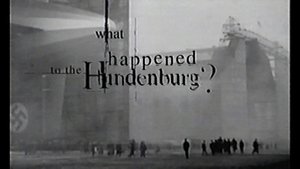
S1 Ep4
8.0
15th Jun 2000
Why did the great airship Hindenburg explode? The disintegration of the Hindenburg in 1937 is one of the most famous disasters of the 20th century. It took more than 100 years to develop what was, in its day, the fastest, most technologically advanced and most luxurious form of transportation in the world -- and 34 seconds to destroy it. The accident that ended the golden age of airships is generally attributed to the ignition of hydrogen gas used for lift. Addison Bain, a retired NASA scientist and hydrogen specialist, sets out on a personal quest of theorizing and experimentation to prove the Hindenburg's real flaw was only skin deep. (UK/PBS 55 min)
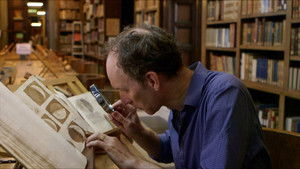
S18 Ep1
7.9
2nd Jul 2019
When it was published in 1610, Galileo’s Sidereus Nuncius (Starry Messenger) set in motion a scientific revolution. Using observations he made of both the earth’s moon and Jupiter’s moons, Galileo proved earth is not the center of the universe. Five hundred and fifty copies of the original treatise were originally printed and roughly 150 are known to exist today. When an original copy with Galileo’s signature and seemingly original watercolor paintings of the phases of the moon believed to be done by Galileo himself came on the market in 2005, Sidereus Nuncius caused a worldwide sensation 400 years after its creation… and again in 2012 when it was proved a fake.
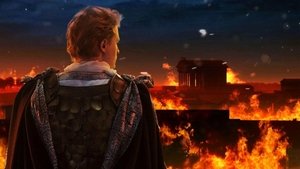
S17 Ep4
7.9
20th Feb 2019
Take a look at the life of Nero and find out what history may have gotten wrong about him
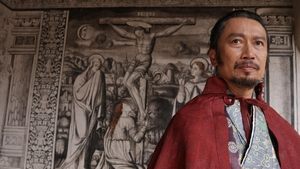
S19 Ep5
7.9
17th Nov 2021
In 1613, feudal lord Date Masamune sent a Japanese diplomatic mission to Europe to negotiate with the Pope and the King of Spain in hopes opening a new trade route. Led by samurai Hasekura Tsunenaga and Franciscan monk Luis Sotelo, the expedition spent seven years traveling one-third of the globe.

S18 Ep3
7.9
8th Apr 2020
Follow an investigation into the centuries-long construction of Notre Dame de Paris, uncovering the vast architectural, technical and human challenges experienced throughout the turbulent history of one of the world’s most celebrated buildings.
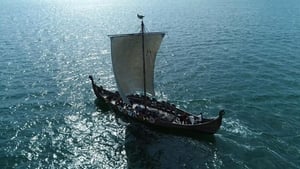
S18 Ep4
7.9
7th Jul 2020
Join a team of archaeologists as they examine one of the most significant Viking graves ever found and test the DNA of the remains of the female warrior buried inside, rewriting our understanding of Viking society.
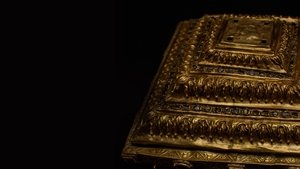
S22 Ep3
7.9
13th Nov 2024
Angkor was the capital of the Khmer empire, which controlled much of the region between the 9th and 15th centuries. The stunning accomplishments of Angkor’s great kings are clear to see –but the period preceding the foundation of their great city is shrouded in mystery. Now, the discovery of an incredible hoard of stunning artifacts is providing surprising new clues about this early Khmer society.
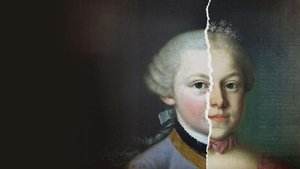
S21 Ep5
7.8
9th Oct 2024
Maria Anna Mozart was a musical prodigy just like her younger brother Wolfgang. Although the children toured Europe together, once Maria Anna came of age, she was left behind while her brother became a star. But controversial new evidence suggests she may have contributed to her brother’s earliest works while a global search for her compositions continues.

S1 Ep3
7.8
16th May 2000
Why did Greenland's Vikings disappear? The Vikings of Greenland left no clues to their sudden and mysterious disappearance. Or did they? On a desolate coast of Greenland, an international team of archaeologists, forensic anthropologists, entomologists and botanists sets out to investigate clues in a complex chain of events that may have led to the demise of a Viking colony. Unearthing the ruins of a settlement that included a cathedral complete with stained glass, the scientists carefully identify and date the vestiges of the Viking society. Among their discoveries are a "mini Ice Age," a war with neighboring Inuits, and a religious order that may have doomed the Vikings to obsolescence. (UK/PBS 55 min)
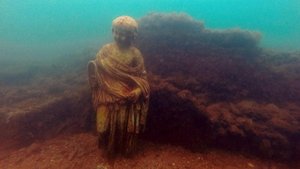
S16 Ep4
7.7
29th Mar 2017
Follow Archaeologists who map underwater ruins of ancient Rome's version of Las Vegas
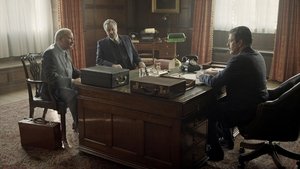
S18 Ep2
7.7
21st Jan 2020
On December 3, 1944, The Washington Post published an editorial on the atrocities in Auschwitz with the headline “Genocide,” marking the first time the word appeared in a national newspaper.
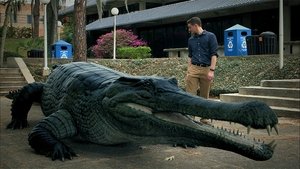
S16 Ep2
7.6
2nd Nov 2016
A mining operation in Cerrejon, Northern Colombia reveals a large cache of fossils dating to ten millions years after the KT extinction of the dinosaurs.
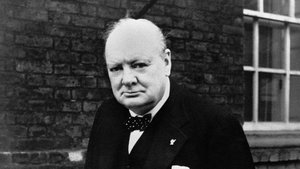
S9 Ep5
7.6
12th May 2010
Find out why Churchill chose to sink the French fleet.
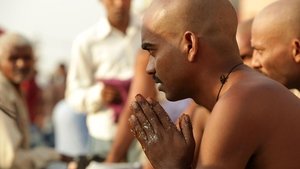
S12 Ep6
7.6
23rd Jul 2013
Bones of the Buddha is a 2013 television documentary produced by Icon Films and commissioned by WNET/THIRTEEN and ARTE France for the National Geographic Channels. It concerns a controversial Buddhist reliquary from the Piprahwa Stupa in Uttar Pradesh, India. It was released in May, 2013, and was broadcast in July 2013 in the US on PBS as part of the Secrets of the Dead series.

S23 Ep4
7.6
29th Oct 2025
Follow scientists as they track down the earliest known bubonic plague victims in hopes of preventing future outbreaks, while historians and scholars explore the societal impact of the plague on medieval Europe. What happens when a third of a continent’s population is wiped out?
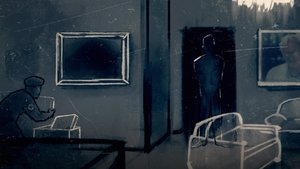
S22 Ep5
7.6
19th Feb 2025
Historian Jonathan Petropoulos investigates the life of former Nazi art dealer Bruno Lohse, who became Hermann Göring’s personal collector in Paris, tasked with finding the most desirable works of art the Nazis stole from Jews. Post-war, Lohse spent a brief time in prison, but then returned to Munich and resumed his career as a dealer, more often than not trading in art looted during World War II.
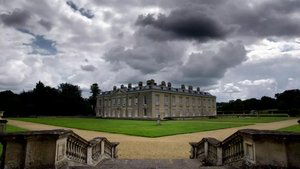
S20 Ep1
7.6
9th Oct 2022
Charles, Ninth Earl Spencer — best-selling author and brother to Diana, Princess of Wales — may be sitting on the greatest British archaeological find of the century. Searching Althorp, the Spencer family estate, for a medieval village, a team of British archaeologists find evidence of something far older.
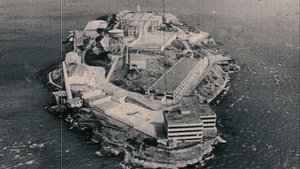
S15 Ep3
7.6
29th Mar 2016
Scientists investigate the 1962 Alcatraz Escape by bank robbers, Frank Morris and Clarence and John Anglin. Three men who vanished out into the dark waters surrounding the notorious prison island.
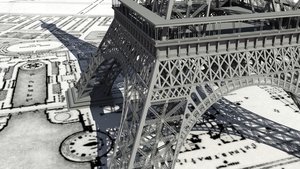
S21 Ep1
7.5
25th Oct 2023
Find out about the race to build Paris’ most famous landmark when two men vied to be the first to build a monument 1,000 feet tall. See how one man’s vision transformed the Paris skyline, making the Eiffel Tower a global icon. Dramatic recreations, official renderings and personal correspondence tell the story.
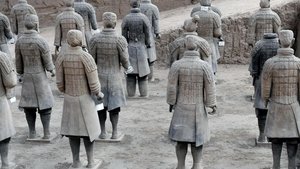
S11 Ep2
7.5
4th May 2011
The life-sized terracotta warriors of China are known throughout the world. This clay army of 8,000 including infantry, archers, generals and cavalry was discovered by archaeologists in 1974 after farmers digging a well near the Chinese city of Xian unearthed pieces of clay sculpted in human form. An amazing archaeological find, the terracotta warriors date back more than two thousand years. But what was the purpose of this army of clay soldiers? Who ordered its construction? How were they created? Secrets of the Dead investigates the story behind China’s Terracotta Warriors and documents their return to former glory for the first time.
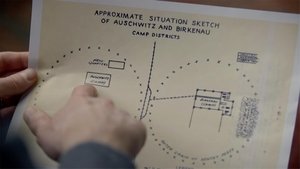
S7 Ep2
7.5
30th Apr 2008
The story of Rudolph Vrba and Alfred Wetzler, two young Slovak Jews who escaped the Auschwitz death camp. They immediately wrote a detailed account of their experiences resulting in thousands of lives being saved.
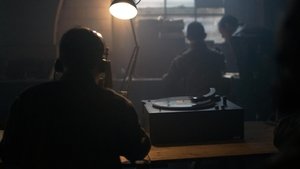
S12 Ep2
7.5
1st May 2013
German POWs reveal inner thoughts about the Third Reich, including military secrets that helped the Allies win World War II.
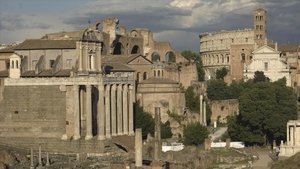
S20 Ep3
7.5
26th Oct 2022
What if climate change and pandemics were the real causes of the decline of the Roman Empire? Scientists from a range of disciplines are accumulating clues to show that three successive waves of deadly epidemics and powerful temperature drops could have caused the collapse of the Empire — and draw frightening parallels to today.
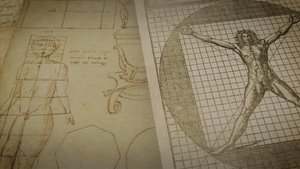
S16 Ep5
7.4
5th Apr 2017
An investigation to discover if Leonardo da Vinci came up with all of his credited ideas and inventions, or were they borrowed from ancient scholars and scientists?
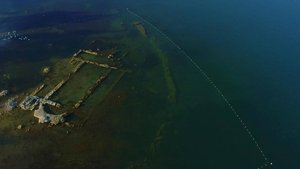
S20 Ep6
7.4
11th Oct 2023
Uncover the sunken remains of a 4th-century basilica in Turkey. Submerged beneath the waters of Lake Iznik for hundreds of years, the church could reveal crucial insights into the early days of Christianity. Join a team of international researchers as they travel back through time—and grapple with Turkey’s many earthquakes, which could sink the structure deeper at any moment.
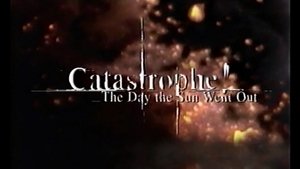
S1 Ep1
7.4
15th May 2000
Did a cataclysmic event plunge humankind into the period known as the early Dark Ages? Scientists now believe the early Dark Ages may have been triggered by a natural event that occurred around 535 A.D. Science writer David Keys is convinced that the cause was a phenomenon of cataclysmic proportions. At the center of a complex chain of events seems to be "a loud bang" -- a volcanic explosion equal to "two thousand million Hiroshima size bombs." The subsequent environmental calamity, Keys believes, affected human civilization from Mongolia to Constantinople, precipitating plague, famine, death, great migration, the fall of the great Mexican city of Teotihuacan, the Anglo-Saxon victory over the Celts and perhaps even the rise of Islam. (UK / PBS) Released to video (VHS) as a single episode. Run time 1:50.
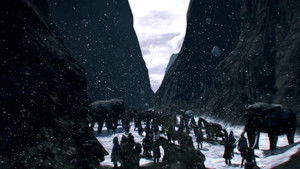
S17 Ep2
7.4
10th Apr 2018
Follow a team of experts as they solve the enduring mystery of exactly where Hannibal and his troops crossed the Alps to launch a surprise attack on Rome.
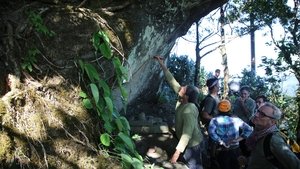
S22 Ep4
7.4
20th Nov 2024
The discovery of gold and silver artifacts in Laos, dating to the early days of the Khmer Empire, leads scientists to investigate how the priceless objects were made and where they might have originated. On their journey, they retrace the steps of the ancient kings and explore the sacred landscape around Vat Phou to learn more about this ancient civilization.

S15 Ep2
7.4
24th Nov 2015
Forensic anthropologists excavate an early American colony of Jamestown, Virginia.
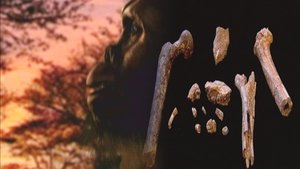
S3 Ep1
4.5
8th May 2001
Explore the scientific mystery of human genesis through a close investigation of 13 fossils found in October 2000. The bones are the oldest hominid remains ever discovered — so old that they come from the time when the divergence of man and ape is thought to have occurred — and could be the blueprint for the first generation of the species that ultimately evolved into modern humans
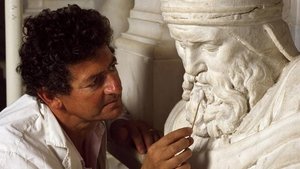
S9 Ep1
4.5
13th May 2009
More than five centuries ago, Michelangelo Buonarroti was the darling of the Catholic Church. The Papacy commissioned him to create many of its most important pieces, including the frescoes of the Sistine Chapel. He spent his life glorifying the Church, etching Catholic ideals into masterpieces that defined religion for the masses. Yet when he died, his body was secretly shepherded off to Florence, and the Church was denied the opportunity to honor him with a grand funeral in Rome. Historians have long wondered about the mysterious circumstances surrounding his death, but now, art historian Antonio Forcellino believes he has pieced together evidence of a deep rift between the Church and the esteemed artist. The cause: Michelangelo’s belief in Protestant ideals, and his involvement with a clandestine fellowship trying to put an end to the decadence and corruption of the Clergy and reform the Church from within.

S2 Ep2
4.8
3rd Jul 2001
A mysterious skeleton buried in a shallow grave beneath a famous ancient monument. Who was he? How long had he been there? And why had his head been severed from its body? Archaeologist Mike Pitts works with scientists, forensics experts and historian to dig up ominous information about early Britain and the circumstances that surrounded the man's death. Was he a cattle thief, an insurgent, or a pagan sacrifice in a newly Christian world? (UK/PBS 55 min)
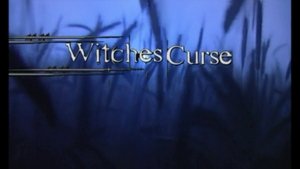
S2 Ep1
5.0
26th Jun 2001
(Disease & Disaster) “The Witches Curse” poses a shocking new idea about the violent convulsions, delirium, and strange skin sensations that struck a group of young girls in 17th-century Massachusetts and inspired the infamous Salem Witch Trials. In 1692, 19 of the town’s residents were put to death because they were believed to have been witches. For hundreds of years, this tragedy was blamed on religious fanaticism, adolescent cruelty, and contagious hysteria. But these explanations failed to satisfy a “detective” who embarked on her own fact-finding mission. Was Salem’s Puritan community unwittingly living on bread infected by the fungus from which LSD is derived? Could toxic amounts of this fungus, known as ergot, be the real reason the accusatory teens endured psychotic episodes and saw blood dripping down their walls at night? And what clues could the 2,300-year-old corpse of a Danish murder victim possibly hold for Salem investigators? Tracking down historic outbreaks of ergot poisoning, Dr. Caporael compares its symptoms to those that plagued the girls in Salem, revealing a whole new side of this unsettling period. (UK/PBS 55 min)

S4 Ep4
5.0
11th Apr 2004
In the summer of 2002, a team of textile restorers was invited to Turin to undertake an unprecedented renovation of the shroud, which called for the removal of the shroud's backing cloth and all of its medieval patches. The results were staggering -- brand new forensic evidence that the shroud is indeed 2,000 years old, dating from the time of Christ. Is it the authentic burial shroud of Jesus Christ, or just a brillian medieval fake?

S4 Ep6
5.0
4th Aug 2004
(Archaeology) The myth of the Amazons, a tribe of bloodthirsty blond women thundering across arid battlefields to the horror of their male foes, has lingered for centuries. Their exploits seized the imagination of the Greek scribes Homer, Hippocrates, and Herodotus. But proof of their existence had always been lacking. Now, a 2,500-year-old mystery may have been solved, cracked by an American scientist whose ten-year odyssey led her tens of thousands of miles in pursuit of the truth. After unearthing evidence of a culture of ancient warrior women in the Russian steppes, Dr. Jeannine Davis-Kimball followed a trail of artifacts to a remote village in Western Mongolia, where her quest for a living link to a long-imagined tribe ended with a startling discovery. There, among the black-eyed Mongols, Davis-Kimball found a blond child, a 9-year-old girl named Meiramgul. Through DNA testing, Davis-Kimball finds that the DNA sequences of the warrior women and those from the girl of Mongolia are identical.
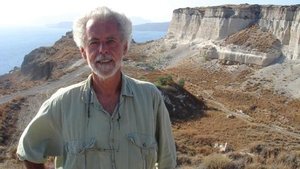
S8 Ep2
5.2
14th May 2008
Five thousand years ago the Minoans, Europe’s first great civilization, flourished on the island of Crete. Yet in their heyday, they mysteriously disappeared. Sinking Atlantis digs deep into the Minoan soil and history, following archaeologists who are finding evidence of a massive tsunami that devastated the Minoans – and may have spawned the myth of Atlantis.

S1 Ep5
5.3
17th May 2000
What happened to the peaceful ancient Pueblo civilization of the American southwest? For 1000 years, the Anasazi -- a democratic people with rich achievements in architecture, agriculture, astronomy and art -- flourished in what is now New Mexico. Yet around 1200 A.D., something brought their utopia to a sudden and mysterious end. Paleo-anthroplogist Christy Turner has found what he believes are clear signs of cannibalism among the Anasazi ruins, but American Indian groups and other archaeologists are skeptical. And while the evidence is difficult to refute, the meaning of the findings is still open to debate. In the shadow of a debate both scientific and political, question remain: Did the Anasazi culture become cannibalistic, or did cannibals from afar stumble across the perfect victims? (UK/PBS 55 min)
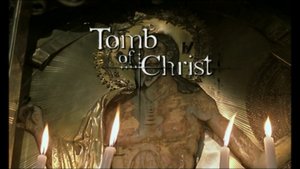
S2 Ep5
5.3
24th Jul 2001
For centuries, visitors to the Church of the Holy Seplulchre in Jerusalem believed that they stood within what was merely a symbolic representation of Jesus' burial place. But what if the edicule within the church, an ancient crumbling structure, really does house Christ's actual tomb? Oxford archaeologists Martin and Birthe Biddle reconstruct Jesus' final day and trace the history of the various incarnations of the edicule -- looking for evidence that there is a tomb present, and trying to decipher whether or not Christ actually lay there. (UK/PBS 55 min)

S9 Ep4
5.6
5th May 2010
During World War 2, Japan developed a super-submarine capable of launching bomber aircraft as a strategic weapon to carry the conflict to the United States mainland. But in the rapidly changing Pacific Theater, one intended mission after another becomes obsolete before the submarines can be deployed
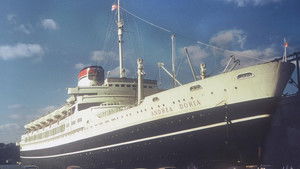
S5 Ep4
5.8
26th Jul 2006
On the last night of an Atlantic voyage, the Andrea Doria luxury liner was broadsided by the 13,000-ton Stockholm in an accident that imperiled more than 1,700 passengers and crew. With the world watching in horror during one of the first televised tragedies, the Andrea Doria sank, sparking a ferocious debate over fault that remains to this day and ended the era of luxury cruise liners.
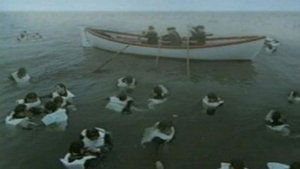
S3 Ep3
6.0
20th Nov 2002
In the aftermath of the Titanic, Canadian rescue ships recovered 328 bodies and buried dozens in unmarked graves. Today, scientific breakthroughs may help 3 families of missing passengers learn the true fate of their relatives.

S3 Ep4
6.0
27th Nov 2002
In 64 AD, Rome was the most magnificent city in the world. Then, in the early hours of July 19, fire broke out in the cook shops and cafés lining the Circus Maximus. Centuries later, questions linger. Was the fire an accident, or was it arson? Is Tacitus a reliable witness? Nero blamed the catastrophe on the Christians — is there any truth to his accusation?
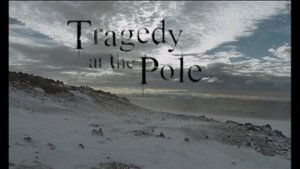
S3 Ep5
6.0
15th Jan 2003
In March of 1912, a team of seasoned Antarctic explorers perished on their way back from the South Pole. Was it possible the explorers were blind-sided by conditions they could never have anticipated?

S3 Ep6
6.0
12th Feb 2003
In the spring of 1943, Allied forces to begin preparations for a top secret Allied raid. Each aircraft carried a top-secret weapon -- a newly-invented bouncing bomb -- designed to shatter Germany's major dams.
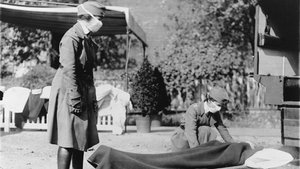
S4 Ep3
6.0
3rd Mar 2004
(Disease & Disaster) In 1918, a flu pandemic ripped through the global population with such speed and virulence that by the end of the following year an estimated 40 million people would be dead. Where did this come from and what made it so deadly? Virologists and epidemiologists the world over are still hunting down the answers.
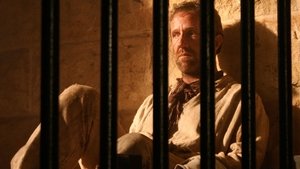
S6 Ep5
6.0
16th May 2007
A plea is smuggled to a New York reporter from within Western Australia's Fremantle Prison. This letter launched an American whaler that stood its ground against an armed British steamer for freedom and independence. The whaler was the Catalpa, its captain was George Anthony and its human cargo consisted of six Irish political prisoners, who had suffered at the Fremantle prison for a decade.

S8 Ep1
6.0
7th May 2008
In the 1970s, female East German athletes came from nowhere to dominate international sport. But behind their success lay a horrifying secret. Doping for Gold reveals the truth behind the biggest state-sponsored doping program the world has ever known, creating a timely perspective on today’s many sports drug scandals.
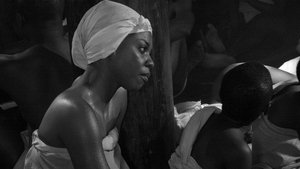
S10 Ep2
6.0
10th Nov 2010
Three disparate Capetowners reveal a long-forgotten, dramatic slave ship revolt en route from Madagascar to South Africa. About half of Cape Town's population are descendants of White, Asian, and Black slaves captured by the Dutch East Indies Company from all around the Indian Ocean. After the captives force the surviving crew below deck, a brave Malagasy warrior and a devious Dutch company agent fight a battle of wits with many surprising turns. For some aboard, the journey ends on infamous Robben Island, where Tokyo Sexwale and Nelson Mandela were later imprisoned.

S10 Ep3
6.0
17th Nov 2010
In 2009, archaeologists discovered an underwater graveyard of five Roman shipwrecks off the coast of Ventotene, a small Italian island with a notorious past. It was one of the biggest archaeological finds in recent history. The vessels’ well-preserved cargo indicates that these ships did not break up on the island’s rocks, but instead sank to the seabed intact and upright. They were laden with exotic goods including wine, olive oil, and the ancient delicacy garum; a condiment highly prized among ancient Romans. These sunken treasures are providing researchers with insight into the wreck, how the Romans lived, and Ventotene’s intriguing past.

S23 Ep6
6.0
12th Nov 2025
There are only two accepted representations of William Shakespeare that are considered "official"—but could a portrait that has been hanging over a family's mantelpiece for the last 50 years be the third? British window washer Steven Wadlow, whose father bought the portrait in the 1960s, is on the hunt to prove the painting is indeed genuine. If so, it could be worth as much as $200 million.
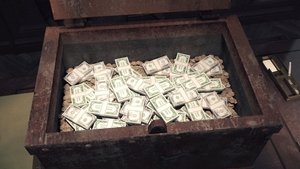
S18 Ep6
6.1
18th Nov 2020
Join three groups of treasure hunters, armed with modern technology and newly uncovered clues, as they set out to find the lost treasure of notorious Prohibition-era gangster Dutch Schultz and solve an 85-year-old mystery.
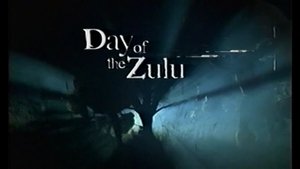
S2 Ep4
6.3
17th Jul 2001
During the Anglo-Zulu wars in South Africa, the success of small British regiments against huge numbers of native warriors became the stuff of legend. But in one key 1879 battle, Zulu fighting unites known as Impis decimated the British forces at the battle of Isandlwana. Historian Ian Knight and forensic archaeologist Tony Pollard investigate the battle scene, trying to assess the impact of a solar eclipse on the outcome, and discovering the Zulu use of performance enhancing "battle drugs" that included cannabis and a powerful hallucinogenic mushroom. New evidence reveals the changing tide of the battle, the innovative strategy of the Zulu and one Critical, irreversible British mistake. (UK/PBS 55 min)
S4 Ep1
6.3
1st Nov 2003
The Battle of Towton in North Yorkshire, fought during the Wars of the Roses, was reputedly the bloodiest battle ever seen on English soil. In 1996 a mass grave of soldiers was discovered there by chance. This was the catalyst for a multi-disciplinary research project, still unique in Britain ten years after the initial discovery, which included a study of the skeletal remains, the battlefield landscape, the historical evidence and contemporary arms and armour. The discoveries were dramatic and moving; the individuals had clearly suffered traumatic deaths and subsequent research highlighted the often multiple wounds each individual had received before and, in some cases, after they had died. As well as the exciting forensic work the project also revealed much about medieval weaponry and fighting. Blood Red Roses contains all the information about this fascinating discovery, as well as discussing its wider historical, heritage and archaeological implications. (UK/PBS)
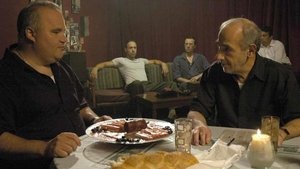
S5 Ep2
6.3
16th Nov 2005
On October 6, 2004, FBI agents began digging up a Queens swamp in the hopes of finding the remains of the man who killed John Gotti's son. Instead, they unearthed a severed foot and other pieces of human skeleton, along with personal effects. Forensic tests tied the remains to Mob family captains who had been killed by mob boss Joseph "Big Joey" Massino. This program documents the search which opens a window into the grisly world of the mob.
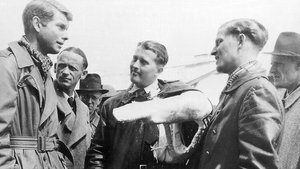
S5 Ep1
6.4
19th Oct 2005
Days after D-Day, Allied forces joined together for a different kind of mission. Through rare footage, eyewitness testimonies, and real-life accounts, the story is told of the race to capture the German physicists and other scientists and any secrets they may hold of advanced 'vengeance' weapons. Finding the scientists could mean gaining significant advantage in the looming Cold War. Liev Schreiber narrates the story of the scientists' dramatic capture and the influences they have on wars today.
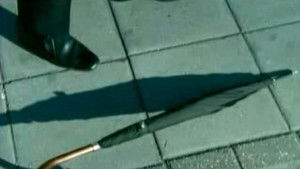
S5 Ep5
6.5
4th Oct 2006
On September 11, 1978, Bulgarian emigre, writer and broadcast journalist Georgi Markov died. Three days before, while waiting for a bus, Markov felt a sudden sting in the back of his thigh. Markov was soon hospitalized. After his death, an investigation ruled Markov had been poisoned. A pellet containing ricin had been shot into his leg. How had this political murder been executed?
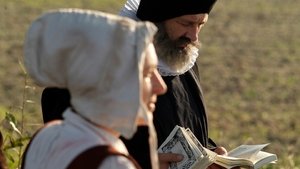
S6 Ep2
6.6
25th Apr 2007
The story behind the creation of the King James Bible from mysterious and inaccessible Latin texts to a book for the common english speaking people.
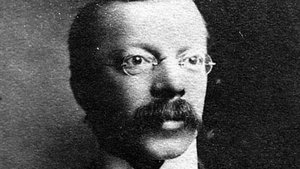
S8 Ep3
6.6
1st Oct 2008
In 1910, an American doctor named Hawley Crippen was convicted in England of poisoning and dismembering his wife. The vicious murder—and execution that followed—made international headlines. It was a landmark case: The first trial by media, and the first to be dominated by forensic science. But did the prosecutors get it right? Almost one hundred years later, investigators have re-opened the files on a murder that became known as one of the crimes of the century.
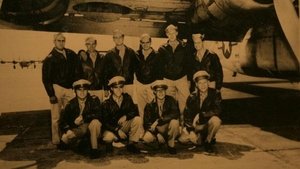
S9 Ep2
6.6
11th Nov 2009
A tribe in Borneo protects a shot-down U.S. bomber crew from Japanese occupiers during World War II. The local missionaries, who converted the tribe to Christianity, were executed by the Japanese invaders, who had forced out Dutch and British colonialists, while massacring Borneo natives. A surviving missionary from Indonesia, employed by the Japanese military as an area administrator, outwits Japanese forces by hiding the U.S. airmen deep in a jungle canyon. The local Dayak people risk their lives, and force the occupiers to abandon their hunt for the airmen, using blowpipes and machetes against the Japanese army search parties.
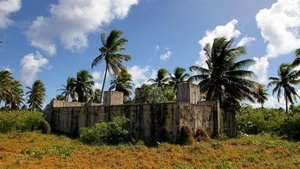
S11 Ep3
6.7
17th May 2011
Beginning in the 1950s, American and Soviet scientists embarked on a perilous race to see who could build and detonate the world’s largest bomb. The results exceeded all expectations about how big a bomb could be built. Initially, the Americans led the way, but then left the field clear for the Soviet Union to break all records. Secrets of the Dead chronicles how the bomb-makers on both sides were working blind as they pushed science into unknown territory to build The World’s Biggest Bomb. As we approach the 50th anniversary of the detonation of the most powerful bomb ever constructed.
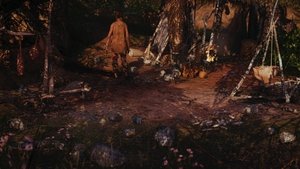
S19 Ep2
6.7
27th Oct 2021
Incredible scientific investigations from across the globe are helping piece together the untold story of prehistoric women. The latest research separates fact from fiction and sheds new light on our ancient foremothers.
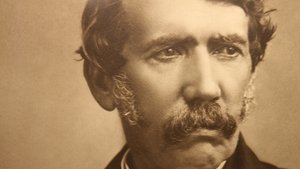
S13 Ep2
6.7
26th Mar 2014
New forensic technology helps researchers study Dr. David Livingstone's lost diary, which reveals he witnessed the massacre of slaves by their traders.
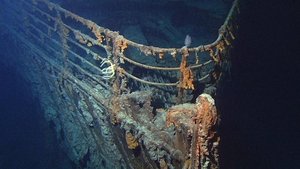
S18 Ep5
6.7
4th Nov 2020
Join a team of investigators as they search for the identity of the captain of a “mystery ship” that turned away from the “unsinkable” Titanic in its darkest hour, abandoning thousands of lives to the icy waters and their deaths.
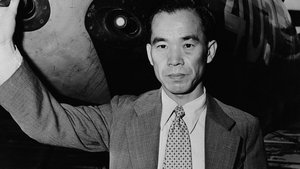
S6 Ep1
6.8
8th Nov 2006
A pivotal moment in World War II, one of the most legendary and best documented dogfights in Air Force history is reconstructed.
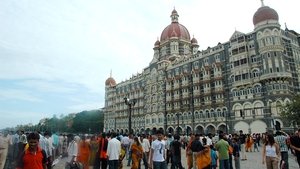
S9 Ep3
6.8
25th Nov 2009
Accounts of the survivors of the indiscriminate terrorist massacres in Mumbai by Islamic Extremests in November 2008 and how the news media aided the terrorist by giving away the hiding places of the soon to be victims.

S1 Ep1
7.4
15th May 2000
Did a cataclysmic event plunge humankind into the period known as the early Dark Ages? Scientists now believe the early Dark Ages may have been triggered by a natural event that occurred around 535 A.D. Science writer David Keys is convinced that the cause was a phenomenon of cataclysmic proportions. At the center of a complex chain of events seems to be "a loud bang" -- a volcanic explosion equal to "two thousand million Hiroshima size bombs." The subsequent environmental calamity, Keys believes, affected human civilization from Mongolia to Constantinople, precipitating plague, famine, death, great migration, the fall of the great Mexican city of Teotihuacan, the Anglo-Saxon victory over the Celts and perhaps even the rise of Islam. (UK / PBS) Released to video (VHS) as a single episode. Run time 1:50.

S1 Ep2
7.3
15th May 2000
Did a cataclysmic event plunge humankind into the period known as the early Dark Ages? Scientists now believe the early Dark Ages may have been triggered by a natural event that occurred around 535 A.D. Science writer David Keys is convinced that the cause was a phenomenon of cataclysmic proportions. At the center of a complex chain of events seems to be "a loud bang" -- a volcanic explosion equal to "two thousand million Hiroshima size bombs." The subsequent environmental calamity, Keys believes, affected human civilization from Mongolia to Constantinople, precipitating plague, famine, death, great migration, the fall of the great Mexican city of Teotihuacan, the Anglo-Saxon victory over the Celts and perhaps even the rise of Islam. (UK / PBS) Released to video (VHS) as a single episode. Run time 1:50.

S1 Ep3
7.8
16th May 2000
Why did Greenland's Vikings disappear? The Vikings of Greenland left no clues to their sudden and mysterious disappearance. Or did they? On a desolate coast of Greenland, an international team of archaeologists, forensic anthropologists, entomologists and botanists sets out to investigate clues in a complex chain of events that may have led to the demise of a Viking colony. Unearthing the ruins of a settlement that included a cathedral complete with stained glass, the scientists carefully identify and date the vestiges of the Viking society. Among their discoveries are a "mini Ice Age," a war with neighboring Inuits, and a religious order that may have doomed the Vikings to obsolescence. (UK/PBS 55 min)

S1 Ep4
8.0
15th Jun 2000
Why did the great airship Hindenburg explode? The disintegration of the Hindenburg in 1937 is one of the most famous disasters of the 20th century. It took more than 100 years to develop what was, in its day, the fastest, most technologically advanced and most luxurious form of transportation in the world -- and 34 seconds to destroy it. The accident that ended the golden age of airships is generally attributed to the ignition of hydrogen gas used for lift. Addison Bain, a retired NASA scientist and hydrogen specialist, sets out on a personal quest of theorizing and experimentation to prove the Hindenburg's real flaw was only skin deep. (UK/PBS 55 min)

S1 Ep5
5.3
17th May 2000
What happened to the peaceful ancient Pueblo civilization of the American southwest? For 1000 years, the Anasazi -- a democratic people with rich achievements in architecture, agriculture, astronomy and art -- flourished in what is now New Mexico. Yet around 1200 A.D., something brought their utopia to a sudden and mysterious end. Paleo-anthroplogist Christy Turner has found what he believes are clear signs of cannibalism among the Anasazi ruins, but American Indian groups and other archaeologists are skeptical. And while the evidence is difficult to refute, the meaning of the findings is still open to debate. In the shadow of a debate both scientific and political, question remain: Did the Anasazi culture become cannibalistic, or did cannibals from afar stumble across the perfect victims? (UK/PBS 55 min)
Loading...
The first episode of Secrets of the Dead aired on May 15, 2000.
The last episode of Secrets of the Dead aired on October 22, 2025.
There are 121 episodes of Secrets of the Dead.
There are 23 seasons of Secrets of the Dead.
Yes.
Secrets of the Dead is set to return for future episodes.